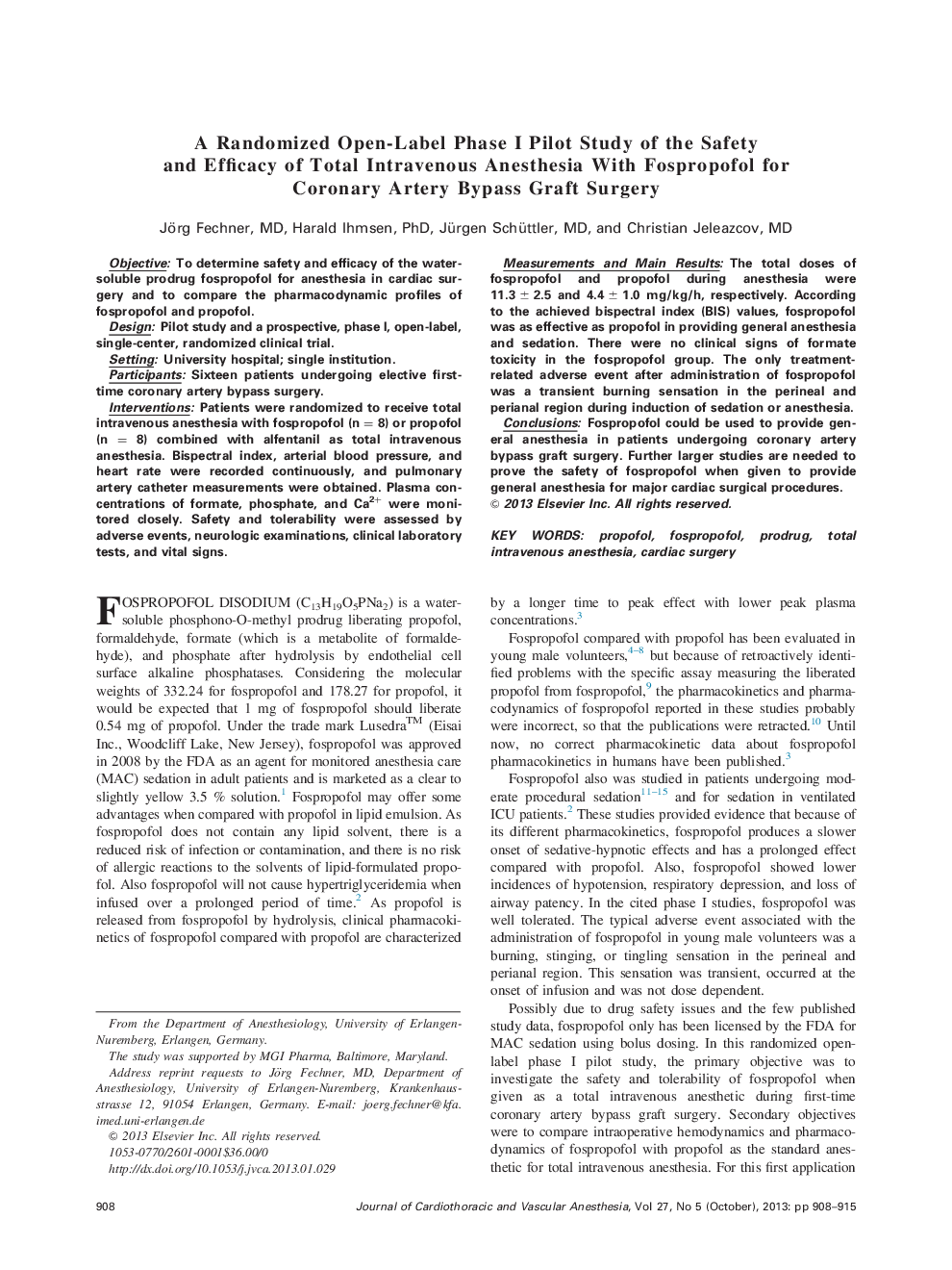| Article ID | Journal | Published Year | Pages | File Type |
|---|---|---|---|---|
| 2759786 | Journal of Cardiothoracic and Vascular Anesthesia | 2013 | 8 Pages |
ObjectiveTo determine safety and efficacy of the water-soluble prodrug fospropofol for anesthesia in cardiac surgery and to compare the pharmacodynamic profiles of fospropofol and propofol.DesignPilot study and a prospective, phase I, open-label, single-center, randomized clinical trial.SettingUniversity hospital; single institution.ParticipantsSixteen patients undergoing elective first-time coronary artery bypass surgery.InterventionsPatients were randomized to receive total intravenous anesthesia with fospropofol (n = 8) or propofol (n = 8) combined with alfentanil as total intravenous anesthesia. Bispectral index, arterial blood pressure, and heart rate were recorded continuously, and pulmonary artery catheter measurements were obtained. Plasma concentrations of formate, phosphate, and Ca2+ were monitored closely. Safety and tolerability were assessed by adverse events, neurologic examinations, clinical laboratory tests, and vital signs.Measurements and Main ResultsThe total doses of fospropofol and propofol during anesthesia were 11.3±2.5 and 4.4±1.0 mg/kg/h, respectively. According to the achieved bispectral index (BIS) values, fospropofol was as effective as propofol in providing general anesthesia and sedation. There were no clinical signs of formate toxicity in the fospropofol group. The only treatment-related adverse event after administration of fospropofol was a transient burning sensation in the perineal and perianal region during induction of sedation or anesthesia.ConclusionsFospropofol could be used to provide general anesthesia in patients undergoing coronary artery bypass graft surgery. Further larger studies are needed to prove the safety of fospropofol when given to provide general anesthesia for major cardiac surgical procedures.
